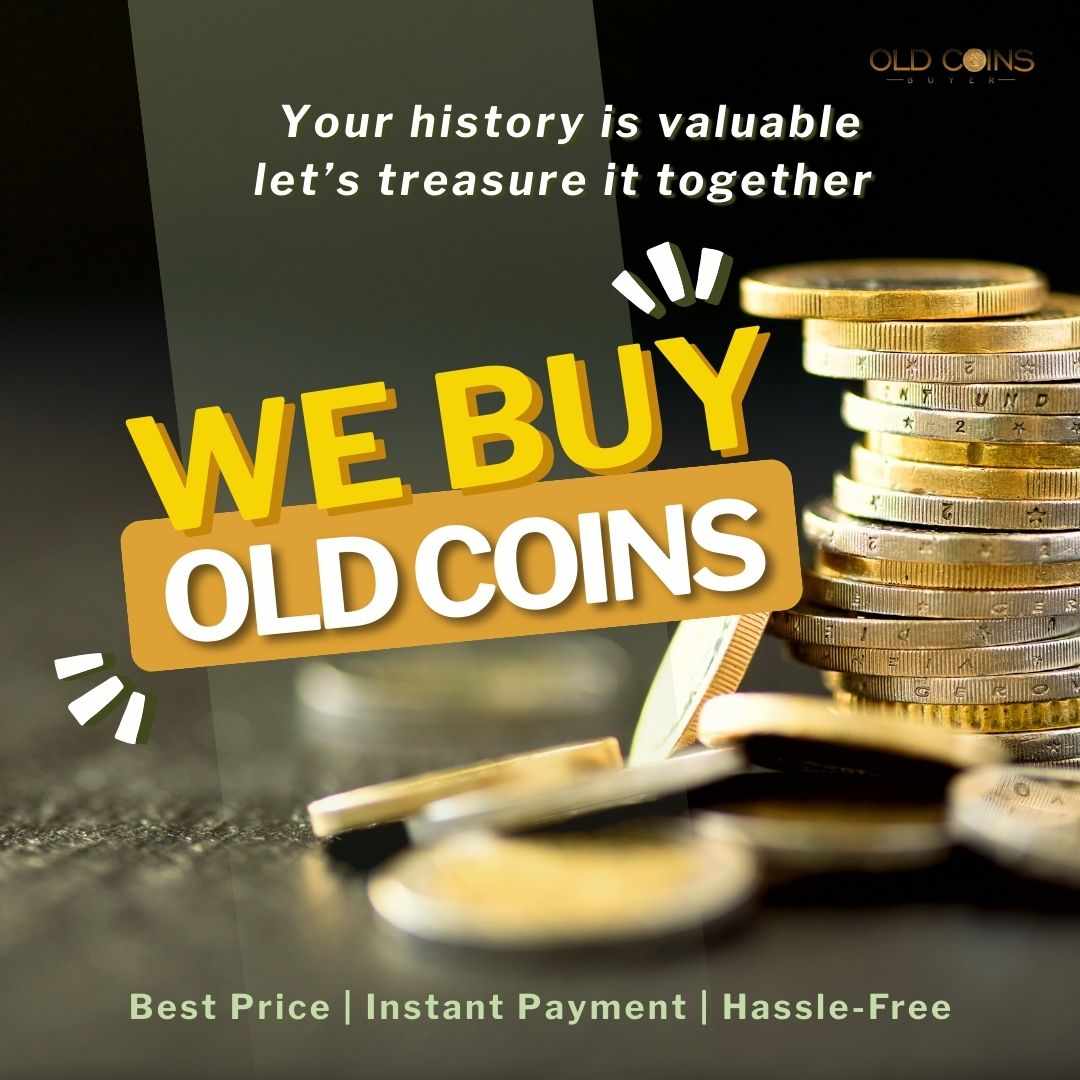
Old Coin Buyer – A Complete Guide to Selling and Buying Rare Coins
The world of old coins is more than just a fascinating glimpse into history — it’s a thriving market for collectors, investors, and enthusiasts. If you own an antique coin passed down through generations, or you’ve stumbled upon a rare piece in a drawer, you might be wondering how to sell it and get the best value.
An old coin buyer is someone who specializes in purchasing rare, antique, and collectible coins — often paying based on historical significance, rarity, demand, and condition. Whether you’re a seller or a collector looking to expand your collection, understanding how the coin buying process works can help you make informed decisions.
Understanding the World of Old Coins
1. What Are Old Coins?
Old coins are typically currency pieces that are no longer in circulation and often hold value beyond their face amount. This value may come from:
Historical significance — Coins minted during a notable event or era
Rarity — Coins with limited mintage or production errors
Precious metals — Gold, silver, or platinum coins with intrinsic metal value
Condition — Well-preserved coins in high grades fetch higher prices
2. Why Are Old Coins Valuable?
The value of old coins comes from a mix of numismatic value (collector interest) and intrinsic value (metal content). Factors that make coins valuable include:
Limited mintage or discontinued series
Unique design or minting errors
Historical connection to rulers, dynasties, or significant events
Age and scarcity in the market
Who Are Old Coin Buyers?
An old coin buyer can be:
Professional coin dealers — Licensed traders who specialize in rare coins
Collectors — Individuals expanding personal collections
Auction houses — Selling coins to the highest bidder
Pawn shops & jewelers — Offering quick deals, though often at lower prices
Online platforms & marketplaces — eBay, Etsy, numismatic forums, specialized coin-selling websites
Professional buyers are usually knowledgeable about coin grading, market trends, and authentication — giving you a fairer valuation compared to selling to a random individual.
How Old Coin Buyers Value Coins
If you want the best price for your coin, it’s important to understand how buyers assess its worth. The main factors include:
1. Rarity
Coins with limited production numbers or discontinued series attract higher demand. For example, a 1933 Double Eagle gold coin in the US is extremely rare and worth millions.
2. Condition (Coin Grading)
The Sheldon Coin Grading Scale is often used to assess coin condition:
Poor (P-1) – Barely identifiable
Good (G-4) – Worn but identifiable
Fine (F-12) – Moderate wear, clear details
Extremely Fine (EF-40) – Slight wear, sharp details
Mint State (MS-60 to MS-70) – Perfect, uncirculated condition
The better the grade, the higher the price.
3. Demand
Coins that are part of a popular series or are sought after by active collectors can sell for more.
4. Metal Content
Some coins are made from precious metals like gold, silver, or platinum. Even if a coin isn’t rare, the metal content can make it valuable.
5. Historical Importance
Coins tied to historical events, specific monarchs, or unique minting techniques hold a special place in collectors’ hearts — and wallets.
Where to Sell Your Old Coins
If you have an old coin you want to sell, here are some common options:
1. Local Coin Shops
These shops have in-house experts who can evaluate and purchase your coins. They often pay on the spot but may offer slightly lower rates than collectors.
2. Coin Shows and Conventions
Large gatherings of collectors and dealers where you can get multiple offers and network with buyers.
3. Online Marketplaces
Websites like eBay, Etsy, and Heritage Auctions allow sellers to reach global buyers. However, fees and shipping risks must be considered.
4. Auction Houses
If you have a rare, high-value coin, selling it at a reputable auction can bring premium prices.
5. Specialized Old Coin Buyers
Many professional buyers specialize in coins from specific regions or eras. They often provide expert appraisals and competitive offers.
Steps to Selling Your Old Coins
Identify the Coin
Check the mint year, country, denomination, and design.
Get It Appraised
Professional appraisals give you an accurate value.
Check the Current Market
Look at recent sales of similar coins online or in auctions.
Decide Where to Sell
Choose between quick sale (local dealer) or higher profit (auction/online).
Negotiate
Don’t accept the first offer unless it’s fair. Compare multiple offers.
Tips for Getting the Best Price from an Old Coin Buyer
Do your research before meeting a buyer
Avoid cleaning coins, as this can reduce value
Get multiple appraisals for comparison
Keep coins in protective holders to avoid damage
Sell at the right time when market demand is high
Work with reputable buyers with positive reviews and credentials
Common Mistakes Sellers Make
Selling without knowing the coin’s actual value
Accepting low offers out of urgency
Believing myths about rare coins without authentication
Using unreliable online buyers without reviews
Damaging coins through improper storage or cleaning
Why Work with a Professional Old Coin Buyer?
A professional old coin buyer offers:
Accurate grading and valuation
Knowledge of current market trends
Access to a wide network of collectors
Secure transactions
Fair pricing based on actual value
Unlike pawn shops or inexperienced buyers, professionals rely on transparent methods to determine value, ensuring sellers get the best possible return.
Conclusion
The market for old coins is both exciting and potentially lucrative. Whether you inherited a rare piece or collected coins over the years, understanding how old coin buyers work is essential for securing the best deal. By researching, getting professional appraisals, and choosing reputable buyers, you can turn your antique coins into significant profits.
In the end, selling old coins isn’t just about making money — it’s also about passing a piece of history to someone who values it just as much as you do.




















Write a comment ...